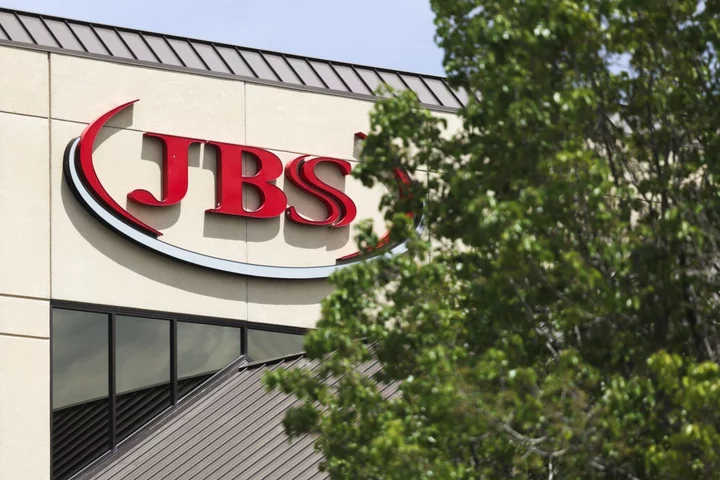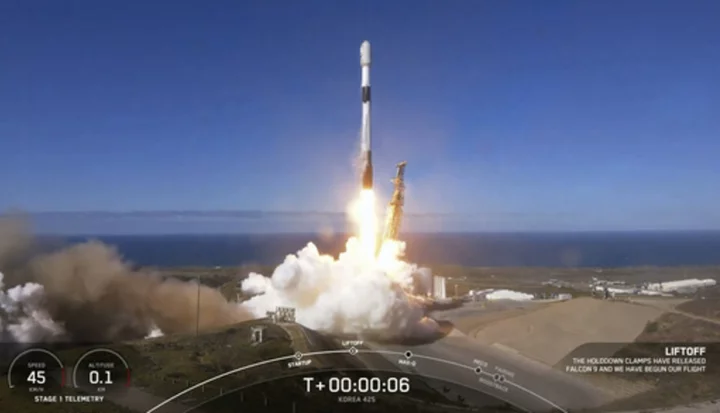JBS SA, the world’s largest meat producer, posted third-quarter profit that missed analysts’ estimates as earnings from its North American beef business tumbled.
Adjusted profit from JBS’s North American beef unit — the company’s largest business — plunged almost 80% from a year earlier as profit margins narrowed, JBS said Monday in a statement. That undercut results for the Brazilian company, which posted adjusted earnings before items of $5.41 billion reais ($1.1 billion) — a 43% drop from the year-earlier period. Results missed the 5.49-billion real average estimate of analysts surveyed by Bloomberg.
Meat producers such as JBS and Tyson Foods Inc. have struggled with tighter supplies of cattle for slaughter, which have contributed to rising animal purchasing costs. The cost of buying fattened animals is on track for its third straight annual increase, with beef wholesale prices lagging, which has eroded meatpackers’ profits. JBS’s North American beef business posted adjusted earnings equivalent to 1.6% of sales, down from 7.3% a year ago.
Despite the beef woes, JBS saw resilience in its pork and chicken businesses. Profit margins at its American pork unit more than doubled from a year ago as a reduction in costs with feed and hog acquisition more than offset lower wholesale pork prices.
The performance contrasts with that of Tyson as the rival’s pork segment posted a quarterly operating loss in the three months ended September.
Read More: Tyson Foods Expects Flat 2024 Sales as Beef Remains a Drag
“The pork business is back to normality,” Chief Executive Officer Gilberto Tomazoni said in a Monday interview.
Last month, Pilgrim’s Pride Corp. — the JBS-controlled chicken producer with operations in North America and Europe — reported chicken profits that beat analyst estimates while projecting a stronger 2024 outlook. Meanwhile, profits at JBS’s Seara unit, which runs chicken and processed-food plants in Brazil, were 68% below year-ago levels.
Tomazoni said JBS is optimistic on the 2024 outlook as the company is set to benefit from recent capacity expansions in Brazil. China’s demand for Brazilian beef has also been recovering from the depressed levels that followed the reopening of the Asian giant’s market earlier this year, according to the CEO.
The company is on track to generate more cash next year and reduce debt levels, Chief Financial Officer Guilherme Cavalcanti said in the same interview.
“Our business have been improving quarter after quarter,” Tomazoni said. “Over time, our geographic diversification stands out.”
(Updates with additional context starting in fifth paragraph)
Author: Gerson Freitas Jr. and Clarice Couto









